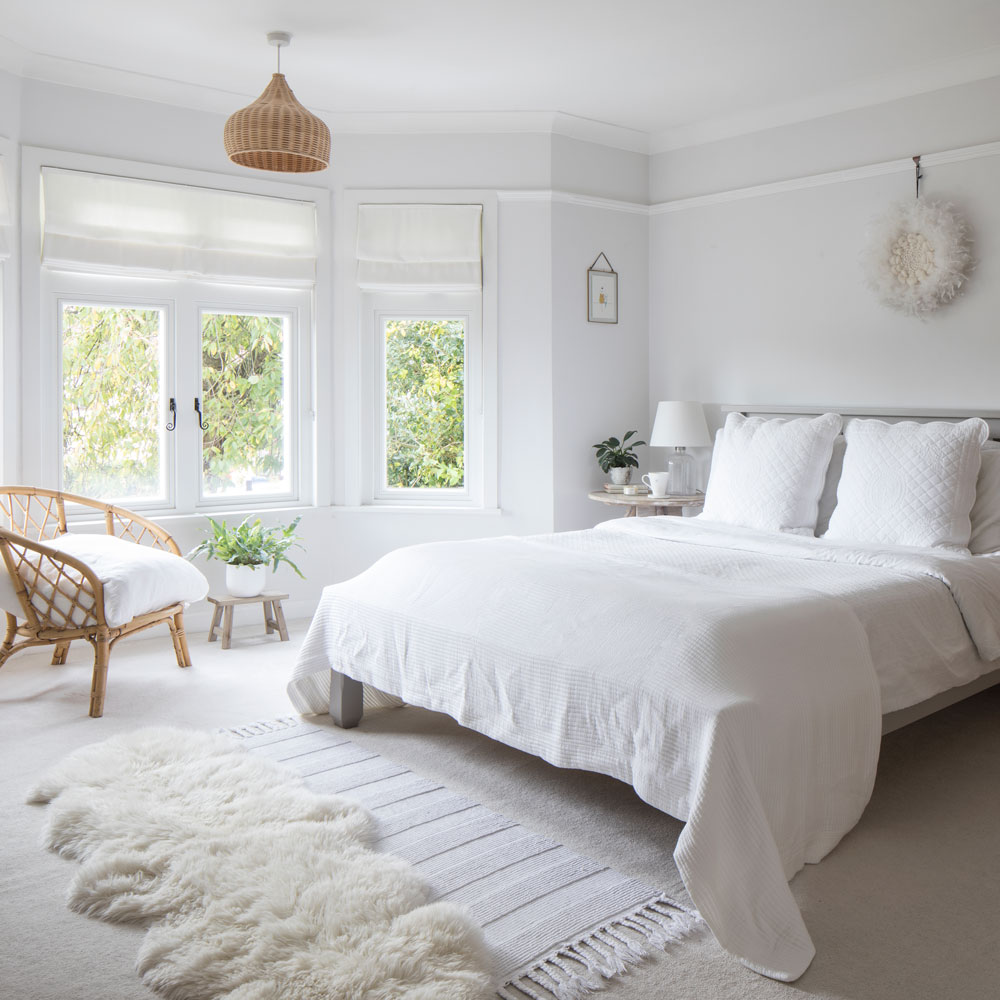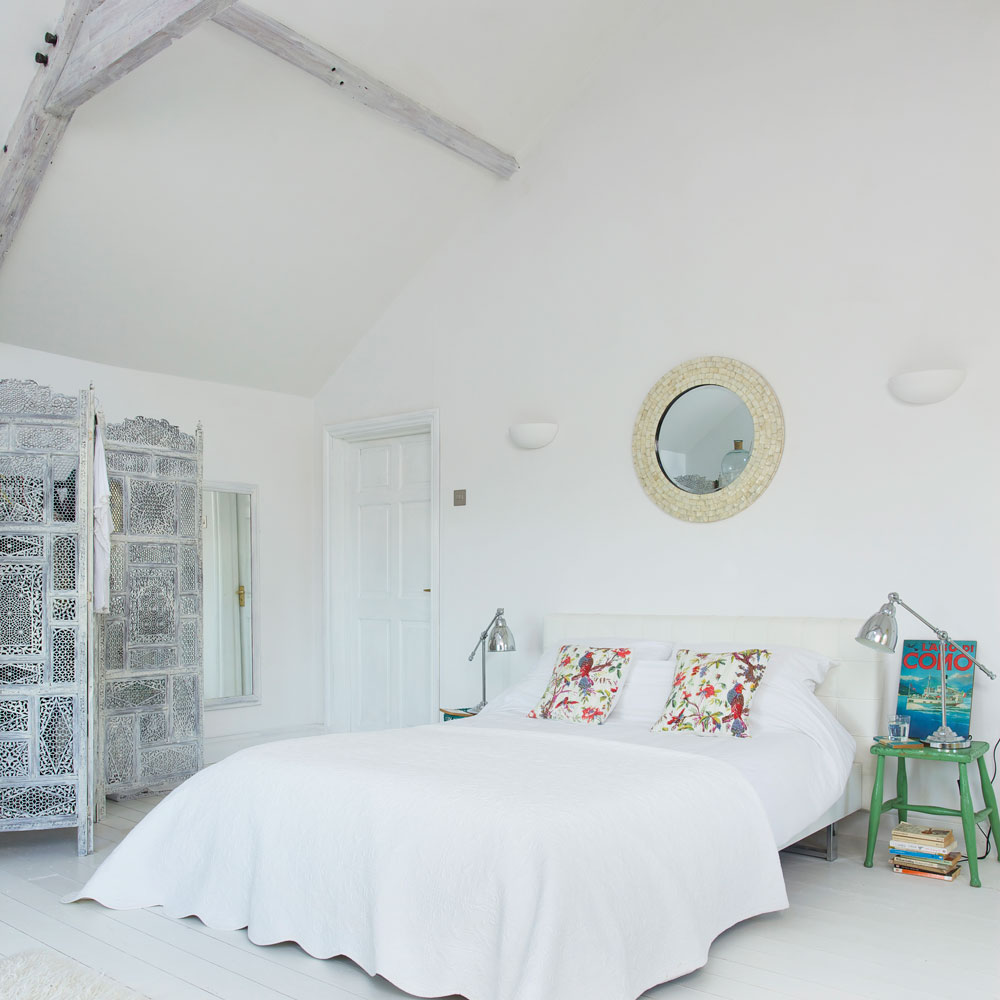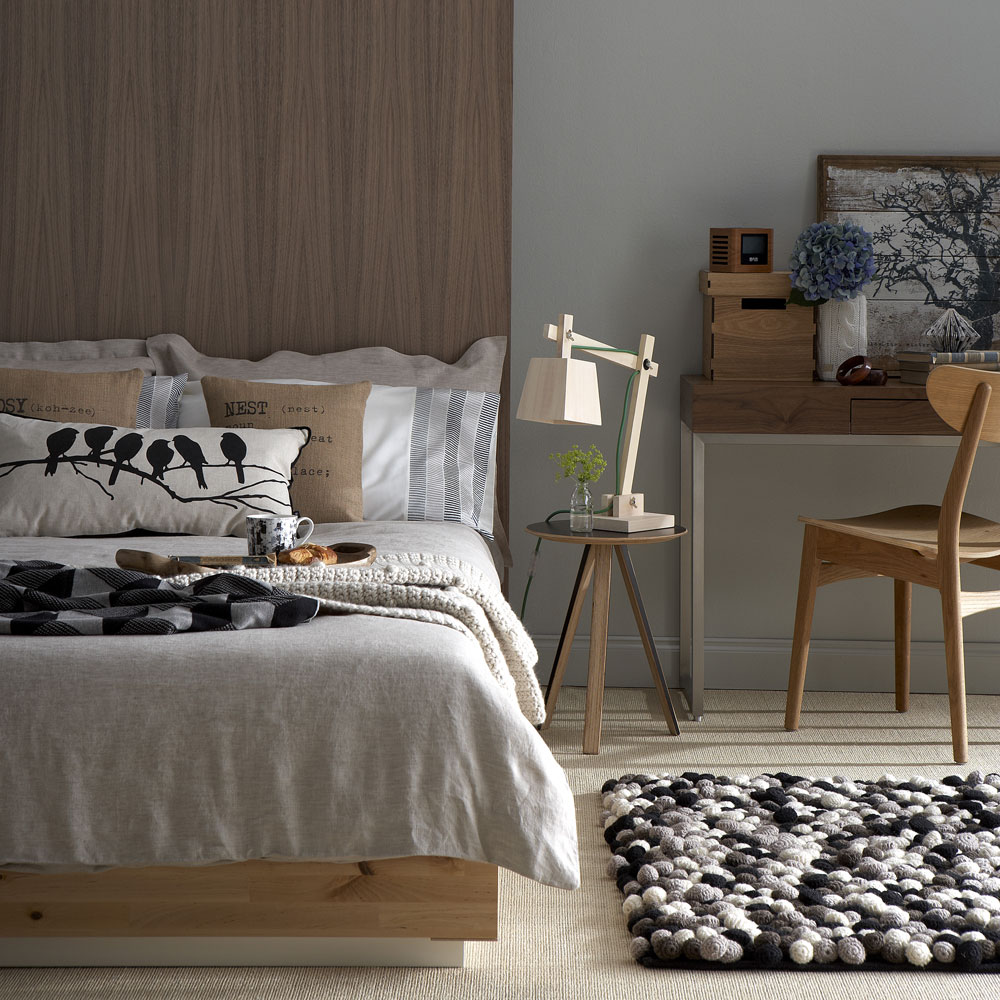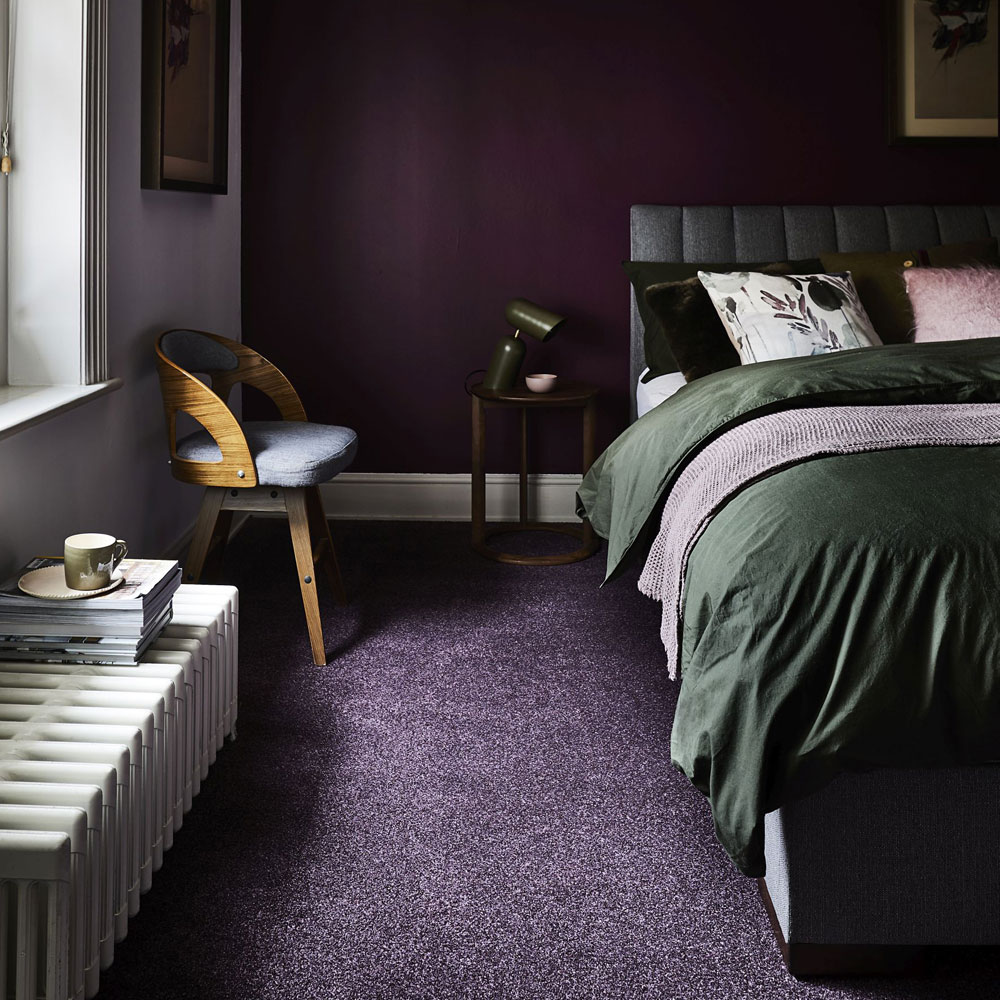Sleep expert reveals why you shouldn't be sleeping on white bed sheets
White bedding could be keeping you wide-awake
Getting a good night's sleep is incredibly important to our health and well-being. Too much screen time, stress and balmy weather are common factors known for keeping us awake at night. But, did you know the colour of your bedding may also be a culprit?
Nothing beats snuggling into freshly laundered clean sheets at the end of a hard day. Crisp white bedding might seem like the perfect match for your best mattress and able to go with any bedroom ideas. But, sleep experts argue that white bedding could be preventing you from getting a quality eight hours of sleep.

'When it comes to sheets, shades in the yellow, orange, red and black families are best, but stay away from whites and [bright] blues,' says Dorothy Chambers from Sleep Junkie.
Why do white sheets affect our sleep?
Via the Sleep Junkie sleep science review programme, more than 1000 adults were surveyed to explore the impact bedroom arrangement and colour has on sleep quality. 'It is thought these colours [white and bright blue] might affect your melatonin levels' Dorothy explains.
Melatonin is a hormone that naturally occurs in the body that controls our sleep patterns. Production of the melatonin makes you fall asleep quicker and less likely to wake up during the night.

To understand the findings further, the science behind the effect is down to light rather than colour. The National Library of Medicine states that being exposed to bright blue and white light affects our Circadian Rhythms. These are the 24hr cycles that help our bodies carry out essential functions.
During the day, bright light can improve our performance and attention. But being exposed to blue and white at night can trick our bodies into thinking it is still daytime. That leads to suppressing the body's release of melatonin.
Sign up to our newsletter for style inspiration, real homes, project and garden advice and shopping know-how
So, it makes sense that crisp white bed linen that reflects the most light would keep us awake after sunset rather than restful.
What colour of bed linen is the best sleep aid?
Perfect bedroom colour schemes always come down to personal taste. But, there are a few specific hues that are said to help us wind down faster than others.

Chambers continues 'Studies suggest that neutral colours are best for a bedroom because they provide a calming and relaxing vibe, as loud and harsh colours can distract and even irritate your eyes while you try to settle in for the night.'
Christine Lapp from Sleep Junkie agrees. 'According to where they lie on the colour wheel, all shades of colour can induce certain moods and feelings in humans.'
'For example, the colour yellow typically induces happiness and optimism. Although these are both positive, pleasant emotions, when it comes to the topic of sleep, they could both be too stimulating.'
'Purple is known to represent peace,' says Christine, 'Therefore, this colour provides a sense of tranquillity and allows the body to unwind, and rest easier.

'When it comes to the best shade of purple, it is preferable to opt for a bluer hue, as opposed to a pink tint. From our study, [pale] blue was the second-best colour for sleep, known for its soothing and calming properties, whereas pink tends to be the colour best suited for inducing creativity, exciting the brain, rather than winding it down.'
If you are affected by lack of sleep, create a restful and calming bedroom environment clear away any clutter with practical bedroom storage and choose a soothing colour scheme that suits your style. Sweet dreams.
Rachel Homer has been in the interiors publishing industry for over 15 years. Starting as a Style Assistant on Inspirations Magazine, she has since worked for some of the UK’s leading interiors magazines and websites. After starting a family, she moved from being a content editor at Idealhome.co.uk to be a digital freelancer and hasn’t looked back.